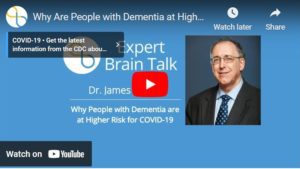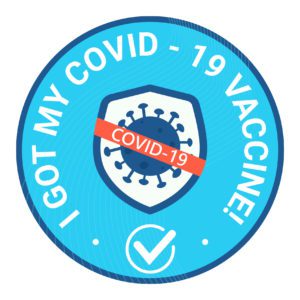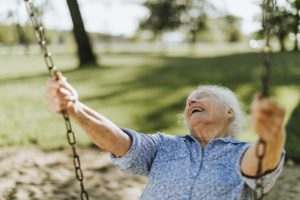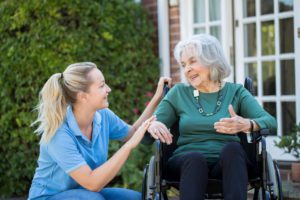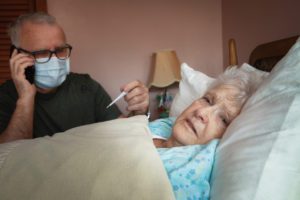Coronavirus
Video Corner: Why are People with Dementia at Higher Risk for COVID-19?
During the COVID-19 pandemic, many caregivers noticed that those suffering from dementia were at a higher risk of contracting the disease. One reason they’re more vulnerable is because they’re less apt to take common sense, reasonable steps that are necessary to protect themselves after possible exposure, or to prevent themselves from even being exposed in…
Read MoreVideo Corner: The Impact of COVID-19 on Caregivers of Alzheimer’s Patients
A large number of Alzheimer’s patients are cared for by family members and spouses. During recent stay-at-home advisories during COVID-19, these caregivers have been under tremendous amounts of increased stress, with little opportunity for respite. Here are some tips for ways to alleviate some of that stress to avoid caregiver burnout.
Read MoreThe Latest News on COVID-19 Vaccines, Including Boosters and the Delta Variant
As the contagious and rapidly-spreading delta variant of COVID-19 continues to increase case numbers in the United States and across the world, the FDA is urging Americans to get vaccinated if they haven’t already. Currently, three vaccines are authorized and recommended in the United States to prevent COVID-19. While the CDC does not recommend one…
Read MoreCOVID-19 Vaccines: Where, When, How & Why to Get It
The U.S. Food and Drug Administration recently authorized the emergency use of two vaccines to prevent COVID-19: one for people 16 and older and another for people ages 18 and older. (There is no vaccine approved yet for children under age 16.) Both vaccines require two doses per person, roughly three to four weeks apart.…
Read MoreWays to Engage Seniors During the Winter
‘Tis the season to stay warm, safe, and healthy – especially for our older population. The combination of navigating the cold winter months with an ongoing pandemic requiring social distancing can create extra challenges for those looking to engage the elderly. Here are some ideas for stimulating indoor activities for seniors that can be safely…
Read MoreOutdoor Activities for the Elderly Community That Fit Within COVID-19 Guidelines
While COVID-19 has dramatically altered life for everyone, it has particularly affected the senior demographic. Since the elderly are at a higher risk of complications from the coronavirus, many of them have significantly restricted their usual activities to lower their chances of catching it. Older adults must do everything they can to protect their health…
Read MoreHow to Help Seniors Cope During a Summer Heat Wave
Many of us look forward all year to the summer heat, as it means we can finally go to the beach, take out the boat, and spend time outdoors. It’s important to realize, however, that the dog days of summer have a much different impact on our senior population. The elderly are more vulnerable to…
Read MoreImportant Factors to Consider When Choosing to Keep a Loved One at Home
The demographical statistics surrounding COVID-19 fatalities can be alarming for those with older loved ones who may be needing additional care. A significant percentage of the pandemic-related deaths so far have been directly related to outbreaks that occurred in nursing homes or assisted living facilities. If you are able to do so, the best protection…
Read MoreCoping with the Loneliness of Social Distancing
The social distancing and lockdown guidelines currently mandated by our federal, state, and local governments are intended to flatten the coronavirus curve in an effort to protect our most vulnerable (the elderly and immuno-compromised), while also giving hospitals time to build up supplies and develop caregiving strategies. This effort to bolster the physical health of…
Read MoreHow Coronavirus Affects the Elderly
The COVID-19 dominating all news headlines has quickly turned into a global pandemic. The strict social distancing and quarantine measures being put in place right now are an effort to “flatten the curve,” primarily to protect the most vulnerable in our society (particularly the elderly and those with comorbid health conditions). Coronaviruses (CoV) are actually…
Read More
